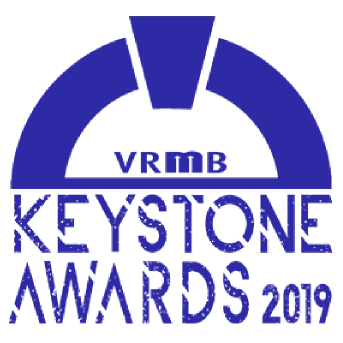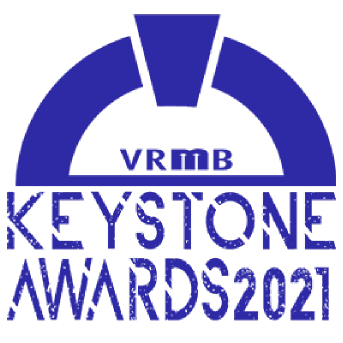As of 2021, there were over 140,000 vacation rental management companies across the globe. And with a compound annual growth rate of 2.24% over the next four years, the projected vacation rental market volume for 2026 is a whopping $20.36 billion.
Needless to say, now is a better time than ever to get into the vacation rental management industry. However, if you want to build a profitable and scalable business, you need to do it the right way.
Check out our definitive guide on becoming a vacation rental manager, which will show you the steps you need to take to launch your business and bring in bookings.
What is vacation rental management?
Vacation rental management entails the operation of vacation rental properties. It includes responsibilities like handling bookings, organizing cleaning and maintenance schedules, and supervising marketing and finances.
As a vacation rental manager, you are also responsible for guest relations, as well as dealing with homeowners (assuming you manage other peoples’ vacation rental homes).
How does vacation rental management work?
Vacation rental management works by acquiring second home owners as clients. You manage and operate their properties as short-term rentals, then collect fees based on the rental income. Read what it takes to be a vacation rental property manager.
What does a property manager do?
A vacation rental property manager is responsible for a variety of tasks. This includes things like
- Handling bookings and booking requests
- Organizing cleaning calendars
- Scheduling routine maintenance
- Addressing guest inquiries, requests, and complaints
- Marketing your properties
- Setting nightly rates
While a property manager may do all these things when they first get started, they can also outsource certain jobs or use specialized vacation rental software tools to automate tasks.
What skills does a good property manager need?
As a vacation rental manager, you may wear many hats. This means you should possess a variety of skills and abilities.
The most valuable skill for a good property manager to have is curiosity. You need to be curious about finding new strategies and solutions if you want to create the most profitable business possible. A good property manager should also be organized and good at communicating.
Additionally, being tech-savvy is essential if you ever want to scale your property management business, as you will need to implement specialized software tools to do so.
Who makes a good vacation rental property manager?
The good news is that just about anyone can become a vacation rental property manager! Vacation rental managers can come from all walks of life, and many have previously worked in industries that have nothing to do with hospitality.
In fact, people with years of experience in the hotel industry often struggle when they get started with vacation rental management due to the differences between the two sectors. So coming from a non-related field is in no way a handicap. The important thing is to have an entrepreneurial spirit, be open to ingenuity, and always stay curious.
How can you become a vacation rental manager?
If you want to become a vacation rental manager, it’s important that you deeply understand the industry and what the role entails. That means doing plenty of research, and perhaps enrolling in relevant courses.
You will also need to understand your market and local regulations, design a business plan, and market your properties to get your vacation rental management business off the ground.
How to start a vacation rental management company
If you want your vacation rental management company to be successful, there are a few things you need to do. Take a look at these key steps to starting a vacation rental business, which we will explain in detail below:
- Study your market
- Find your niche
- Create a business plan
- Research local laws and regulations
- Register your business
- Select the right tools
- Keep scaling in mind
- Market your properties
- Build local partnerships
Study your market
Proper planning and research is key to starting a successful property management business. Before diving into the industry, you want to be sure you’re entering a vacation rental market with sufficient opportunity for growth and success.
Take a look at the competitive landscape in your area. By doing so, you’ll discover whether you’re entering a market that offers opportunities, as well as what you need to do to differentiate your vacation rental business.
It’s also important to identify whether there are big competitors in your area that you’ll be up against. This research can be as simple as typing “vacation rentals in my area” into Google and seeing what else is out there.
Finding multiple existing vacation rental managers doesn’t necessarily mean that investing in that area is a bad idea. However, you’ll have to be sure that you position your properties in a unique way to make them stand out against the competition.
A few things to research about your local market include
- Average nightly rates in your area
- Average occupancy rates
- How many guests the average property hosts
- Whether there’s an off-season
To do your research, consider using a tool like Key Data Dashboard, AirDNA, or Transparent. These platforms give you a convenient overview of the short-term rental market data you need to make an informed decision and design your vacation rental pricing strategies.
Research local laws and regulations
Before deciding where to base your vacation rental business, it’s essential to look into local laws and regulations in the area you’re planning to invest. For example, say you’re looking to launch your vacation rental property management company in Spain: It would be crucial to be aware that short-term private room rentals in Barcelona are forbidden.
Wherever you are based, look into the local laws related to vacation rentals. These laws can vary from city to city, so zero in when researching and focus on local laws. These regulations aren’t necessarily prohibitive, but they may very well shape the way that you choose to set up your business.
Find your niche
Once you’ve determined that you can make a splash in the market, it’s time to narrow down on a niche. The key here is to build a unique, recognizable brand by homing in on an area or type of property.
For example, if you’re planning to work with property owners in a big city, focus on listings in one specific neighborhood. Alternatively, you can focus on one specific type of property, whether that be beach houses, log cabins, or large villas.
Your brand should shine through in every aspect of your business: Choose your name accordingly, design a website appropriately, and build a brand image on social media. A successful vacation rental company doesn’t try to be everything for everyone. Rather, it focuses on an ideal guest and tailors every aspect of its offering to fit that specific guest’s desires.
Create a business plan
The next step is to create your business plan. When creating a vacation rental business plan, prioritize business goals and plans for scaling. Also be sure to lay out other key aspects of your vacation rental business, including:
- Value proposition
- Unique selling points (USPs)
- Market analysis
- Ideal guest analysis
- Operations plan
- Marketing and distribution plan
- Revenue management framework and financial plan
By determining and clarifying these aspects of your business, you’ll be setting yourself up for success for more bookings, more revenue, and sustainable growth.
Register your business
Once you’re ready to set up your business, it’s time to make it official. Depending on where you live, this process will differ. For example, you’ll want to set up an LLC if you live in the United States, or incorporate your business if you are based in Canada.
The main reason for this is to protect yourself and your assets: If a guest were to file a lawsuit against you as an LLC owner, the only thing at risk would be the assets of your business and not your personal assets.
Aside from this, registering your business can have various tax benefits, as well as help you separate your personal finances from your rental income and expenses.
Select the right tools
A modern vacation rental company is only as powerful as its tech stack, which is why you need to select the right arsenal of vacation rental software to run your operations. There are a number of different types of tools you should consider, but perhaps the most important is a property management system, or PMS.
In fact, in a 2020 study, 45% of vacation rental management companies responded that their PMS was the most valuable software they used in their business. A PMS will simplify and streamline your operations, helping with jobs like
- Distribution: Pick a vacation rental PMS that helps you distribute and manage your listings across multiple channels, such as Booking.com, Airbnb, Vrbo, and your direct booking website.
- Pipeline management: Find a tool that helps you identify and close on bookings leads so you can maximize occupancy and profits.
- Upselling: Make more money from each stay with a tool that helps you market the upsells your guests want to see, like early check-in and mid-stay cleans.
Hostfully, for example, is a comprehensive solution that can help with numerous vacation rental operations problems, including channel management, scheduling, guest communication, upselling, and payment processing, all in one place.

While choosing the right property management software will be key to the success of your business, there are other software solutions you can use to make your job easier and your company more successful, such as digital guidebook, dynamic pricing, guest communication, payment processing, and vacation rental accounting tools.
Keep scaling in mind
Just because you start out with one vacation home doesn’t mean you can’t expand to offer large-scale property management services. Growing your business should be at the center of your business plan, and there are a few ways to make scaling your vacation rental management business more realistic.
The first is to use the right vacation rental management tool, like a channel manager or Airbnb automation software, to optimize as many of your processes as possible. Hostfully’s powerful property management platform is an example of a solution that can help you scale your business. With features like channel distribution, a unified inbox, a central calendar, and automated messaging, this type of tool takes pressure off of you so you can focus on broader goals.
Another key point here is being able to let go and outsource jobs. By delegating tasks, you’ll no longer be bogged down by your daily operations, and you’ll be able to focus on bigger-picture ideas and projects.
So while you may have to wear many hats when you get started, like marketer, accountant, and customer service representative, don’t be afraid to outsource these tasks and hand them over to employees as you grow.
Though it can be hard to let go of some of the control you have over your business, failing to do so will hold you back come time to scale.
Related post: Airbnb Management Software: Boost Your Bookings and Income
Market your properties
Make it easy for potential guests to find your properties by creating a strong vacation rental marketing strategy. The specific approach you take will depend on the nature of your properties and your ideal guest profile, but there are a few things every vacation rental manager should do.
First off, know that your listing is your most important piece of marketing material, so you should treat it as such. This is the first and only contact many guests will have with your brand before they decide whether to book with you, so make your listings detailed and designed with your ideal guest in mind.
It’s also a good idea to have a presence on social media—which channels you should focus on will depend on the demographics of your ideal guest profile, but be sure to have some sort of online presence.
Next, you will want to build a direct bookings site to capture potential guests who find your properties on Google. This is also an excellent way to attract potential second property owners who are looking to work with a vacation rental management company. Having a website will be essential for maximizing profits through direct bookings, especially when it comes to repeat guests.
And once you start to build a base of previous guests, engage in email marketing strategies to retain customers and increase direct bookings via your branded website. With Hostfully’s customer data management capabilities, for example, you can capture guests’ email addresses and run remarketing campaigns.

Build local partnerships
Finally, building a community of other local businesses is a great idea for vacation rental managers who are just getting on their feet. You can partner with local restaurants, vendors, and tour companies to offer curated recommendations to guests within your digital guidebooks (and you may even bring in a commission to boot).
Also, your competitors don’t have to be your enemies: You’re all in the same business, and building partnerships can mean more bookings for everyone. If a potential guest makes a booking inquiry for a holiday weekend and your properties are fully booked, refer them to another familiar vacation rental property management company in the area.
Good deeds beget good deeds, and when you help your fellow vacation rental managers, you’ll reap the benefits in the long run.
Watch the bookings roll in through successful vacation rental management
You don’t need years of experience to become a vacation rental property manager. With the right approach, people from just about every background can launch and run a successful vacation rental business.
By following these steps, you’ll set yourself up for success and scalability by creating a strong business that has its own unique place in the vacation rental market. And remember that with the right tools, you can make vacation rental management a breeze.
Frequently asked questions about vacation rental management
Is the vacation rental business profitable?
If you set up your business right, the vacation rental business can be very profitable. There are many people that earn a living off running a vacation rental business, so you can definitely make this endeavor a lucrative one.
How do you profit from a vacation rental?
If you want to profit from a vacation rental, you have to set up your business right. The key to running a profitable vacation rental business is finding the right market, creating a unique offering, and using tools that alleviate your workload.
What is a good profit margin for vacation rentals?
If you’re starting a vacation rental business, a good profit margin to aim for is 10%. It’s important to measure this annually rather than over shorter periods of time, as your occupancy and revenue can vary significantly from one month to another.
What are the pros and cons of vacation rentals?
There are many pros to vacation rentals, as well as some cons. The pros of running a vacation rental business include profitability, scalability, and the creativity it allows you. However, some of the cons of vacation rentals include rowdy guests, seasonal instability, and unexpected expenses.










